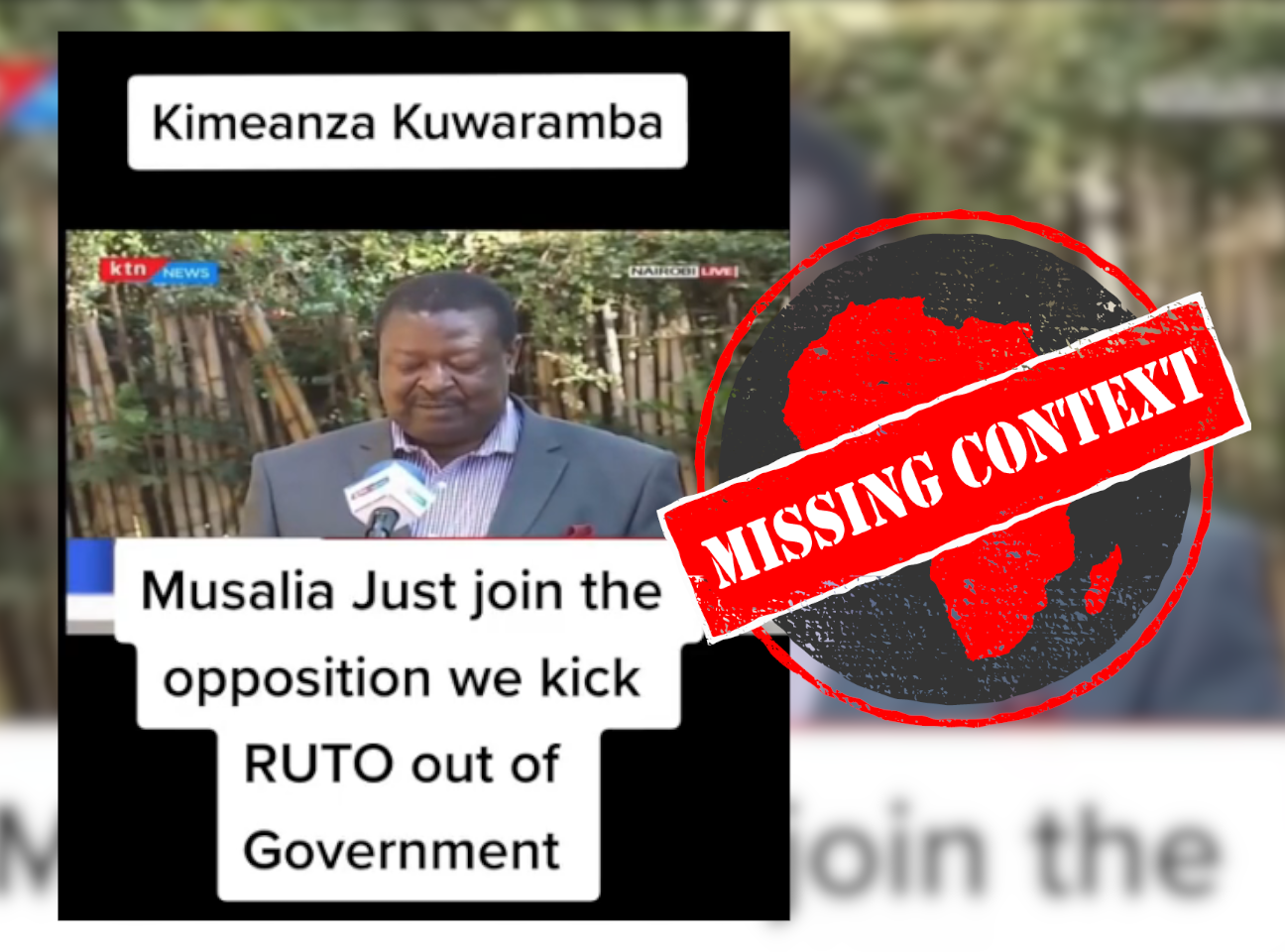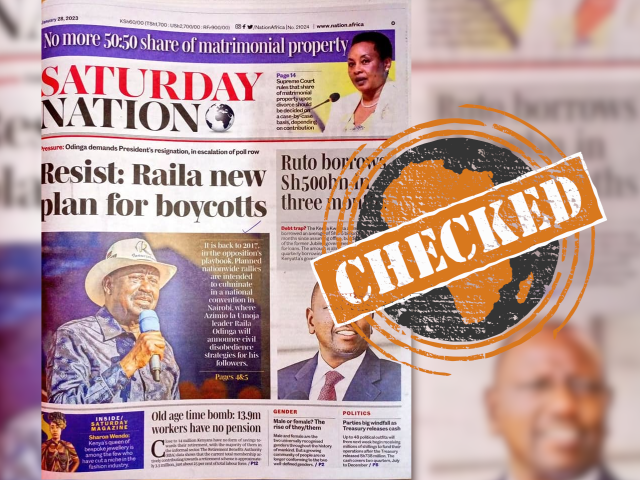IN SHORT: A video circulating online shows Musalia Mudavadi criticising the government over a proposed housing levy. But this is an old video of him criticising a previous government.
A video circulating on social media shows Kenya’s prime cabinet secretary, Musalia Mudavadi, reading a press statement criticising the “newly introduced 1.5% house tax”.
In it he says the tax is “insensitive and burdensome because you’re taxing an already overburdened worker”. He also says the tax is illegal.
The video ends with him saying: “If the government is truly committed to affordable housing, it must make it possible for Kenyans to build houses affordably on their own.”
On TikTok, the video is captioned: “Musalia just join the opposition we kick Ruto out of government.” It has over 1,400 likes and has been shared more than 600 times.
The video was also shared on Twitter, with the tweet reading: “PM. Musalia Mudavadi opposes President Ruto for the first time.” It has been viewed over 22,000 times.
Given that Mudavadi is the prime cabinet secretary in president William Ruto’s government, it would raise eyebrows if he criticised the policies being promoted by the administration in which he is a senior leader.
So what’s the story behind this video?

Housing tax in Kenya
Ruto’s government, which took power in September 2022, recently proposed a housing levy set at 3% of basic pay. Under the proposal, employers would match the workers' contribution.
The Kenyan government plans to build more than 200,000 homes a year with this money.
However, several parties, including the civil servants’ unions, are opposing this proposal. They have threatened a nationwide strike.
Ruto has tried to popularise the plan, saying it’s not a tax, but a contribution to help low-income earners own homes.
Francis Atwoli, the secretary-general of Kenya’s main trade union, has backed the levy. Others, including former prime minister Raila Odinga, have called for it to be optional rather than mandatory.
The previous government, led by Uhuru Kenyatta, under whom Ruto served as deputy, attempted to introduce a similar plan. But in the earlier proposal the levy was set at half the current proposed rate of 1.5% of basic pay.
The plan still faced strong resistance, particularly from labour groups. At the time, Mudavadi was one of the most vocal opponents of the levy.
After workers' lobby groups took legal action against the levy, Kenyatta ordered that it be made voluntary rather than compulsory.
Video from 2019 and previous administration
So has Mudavadi opposed the new levy introduced by Ruto’s government?
A YouTube search with related keywords, such as “Mudavadi housing tax”, leads to the original clip. This clip was uploaded on 17 April 2019.
The video being circulated on social media in 2023 is an actual, unedited video clip of Mudavadi criticising the housing levy.
However, during the press conference, Mudavadi criticised the levy imposed by the then government, under Kenyatta. Mudavadi was not in government at the time.
The claim that Mudavadi has publicly criticised the new housing levy proposed by Ruto’s government, in which he serves, is false.
Republish our content for free
For publishers: what to do if your post is rated false
A fact-checker has rated your Facebook or Instagram post as “false”, “altered”, “partly false” or “missing context”. This could have serious consequences. What do you do?
Click on our guide for the steps you should follow.
Publishers guideAfrica Check teams up with Facebook
Africa Check is a partner in Meta's third-party fact-checking programme to help stop the spread of false information on social media.
The content we rate as “false” will be downgraded on Facebook and Instagram. This means fewer people will see it.
You can also help identify false information on Facebook. This guide explains how.



Add new comment